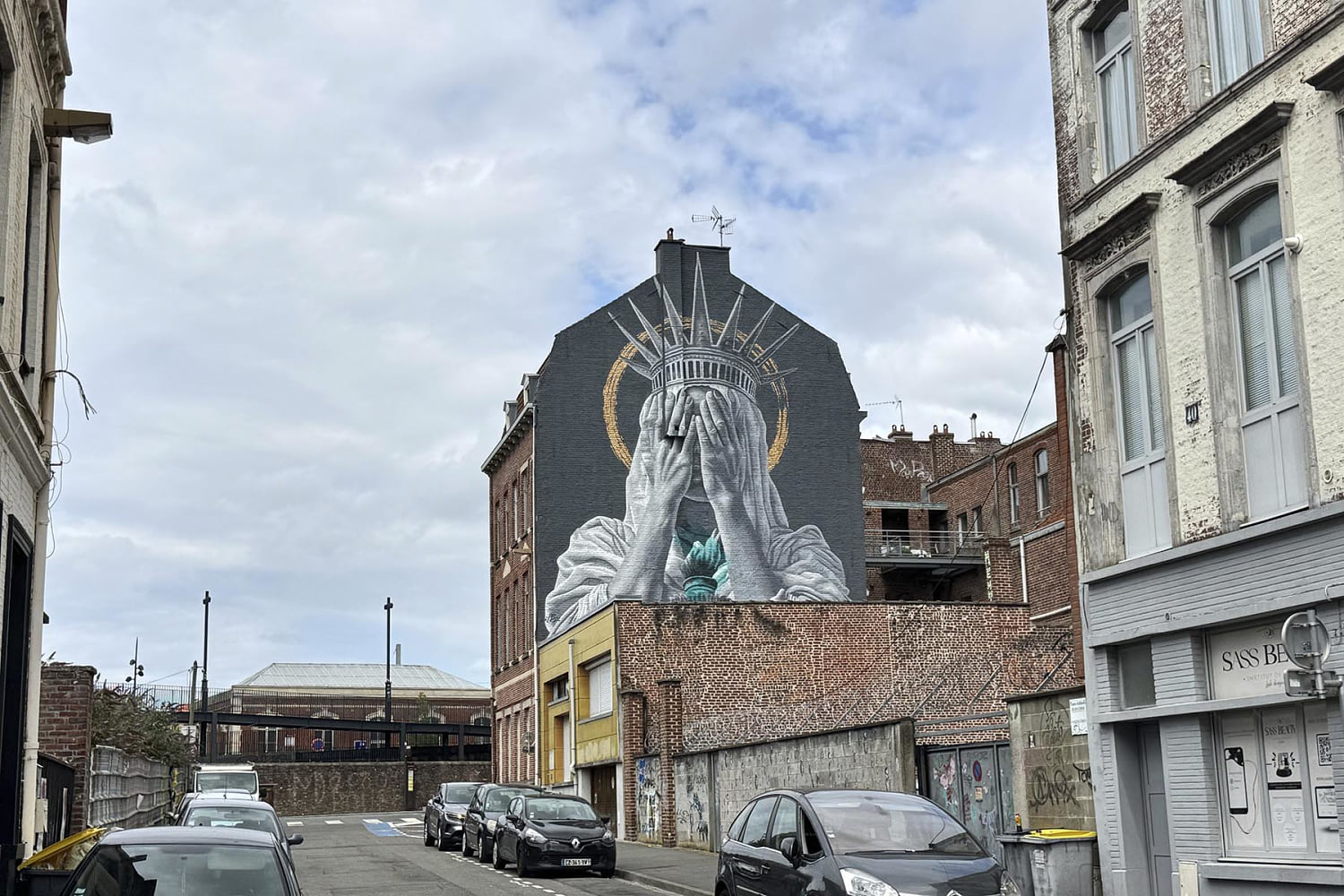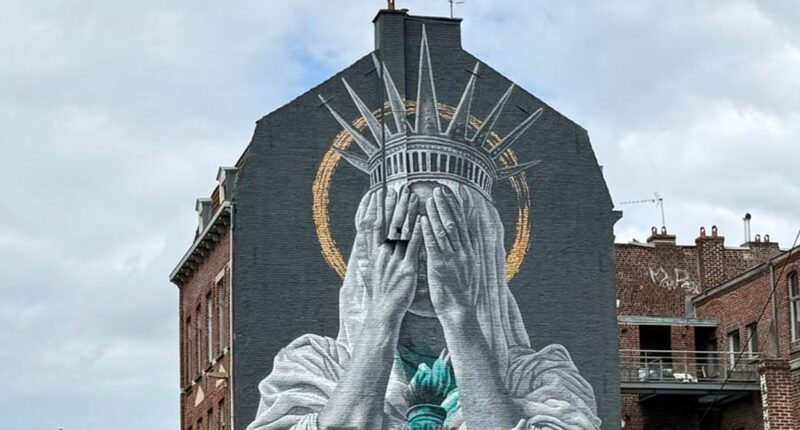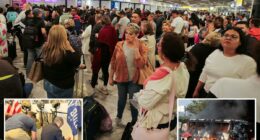Share this @internewscast.com

ROUBAIX, France — As statements go, it’s a big one.
A massive mural in France depicting the Statue of Liberty with her eyes covered has been gaining millions of views online. This artwork is a critique of U.S. President Donald Trump’s immigration and deportation policies.
Judith de Leeuw, a street artist from Amsterdam, created this monumental piece in Roubaix, a town in northern France with a significant immigrant population. She describes it as “a gentle reminder of what true freedom should be.”
She said “freedom feels out of reach” for migrants and “those pushed to the margins, silenced, or unseen.”
“I painted her with her eyes covered because the world’s burdens have grown too overwhelming to watch. Once a beacon of liberty, she now bears the grief of lost significance,” de Leeuw explained in a Facebook post on July 4, coinciding with America’s Independence Day celebrations.
Her depiction of the Statue of Liberty, a gift from the French people in the late 1800s, has inspired some sharp criticism.
Rep. Tim Burchett, a Republican lawmaker from Tennessee, wrote in an angry post on X that the work “disgusts me.” He said he had an uncle who fought and died in France, where U.S. forces saw combat in both World War I and World War II.
In an interview with The Associated Press, de Leeuw was unapologetic.
“I’m not offended to be hated by the Donald Trump movement. I am not sorry. This is the right thing to do,” she said.
The town stood by the work, with its deputy mayor in charge of cultural affairs, Frédéric Lefebvre, telling broadcaster France 3 that “it’s a very strong and powerful political message.”
Since returning to the White House amid anti-immigration sentiment, Trump has launched an unprecedented campaign that has pushed the limits of executive power and clashed with federal judges trying to restrain him. People from various countries have been deported to remote and unrelated places like South Sudan and the small African nation of Eswatini.
Immigration is one of Trump’s strongest issues in public polling in the U.S.
The mural in Roubaix is part of an urban street culture festival backed by the town. Roubaix is one of the poorest towns in France. It was economically devastated by the collapse since the 1970s of its once-flourishing textile industry that used to attract migrant workers from elsewhere in Europe, north Africa and beyond.










